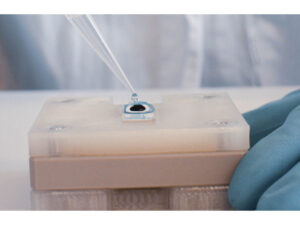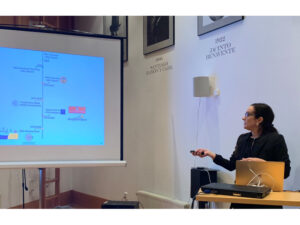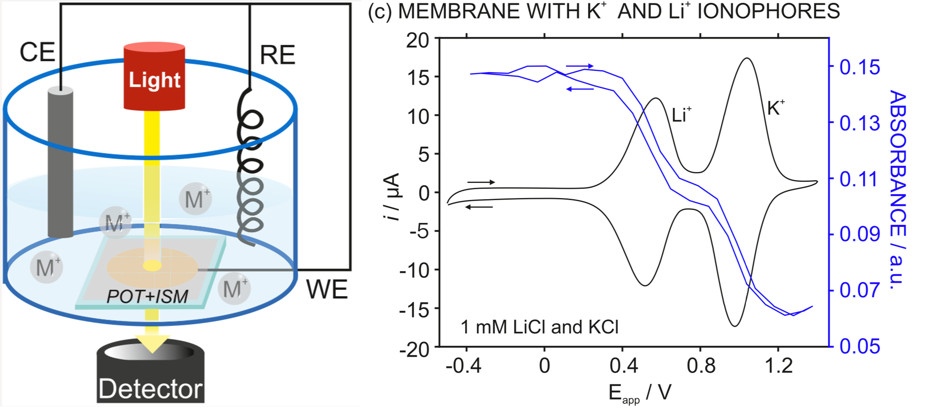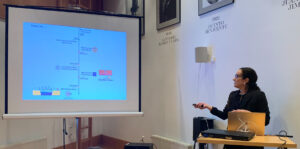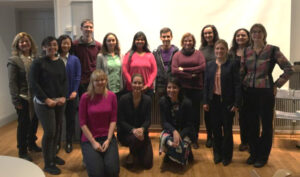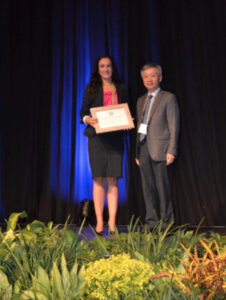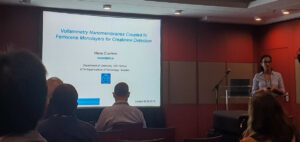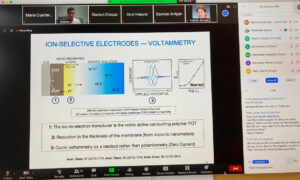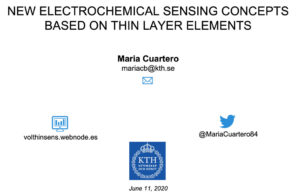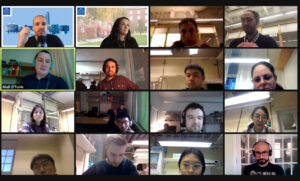MSCA-Individual Fellowships (Agreement Nr 792824)
€ 185 857,20
Starting date: 01.11.2018
Program: H2020-EU.1.3.2. – Nurturing excellence by means of cross-border and cross-sector mobility
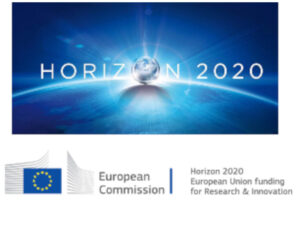
‘Ultrathin membranes are the key element for new ion sensors able to act in real contexts and samples. The VolThinSens project addresses challenging ion analysis cases in pharmaceutical/clinical and environmental domains.’
Modern society is evolving to a scenario in which all daily activities will be monitored using smart sensors. The provision of rapid, reliable and decentralized data is crucial and chemical sensors are current candidates for this purpose. VolThinSens puts forward an innovative sensing strategy from the ground up for reliable detection of ions addressing problems that constitute the bottleneck for the final application of electrochemical sensors in real contexts. VolThinSens will provide robust ion sensors with a wide application perspective within EU priorities such as “citizens’ welfare” and “protecting nature”, among others. VolThinSens will enhance EU excellence and competitiveness in pharmacological/clinical control as well as water issues through the provision of trustable relevant data.
New redox mediator based on ferrocene moieties immobilized on glassy carbon electrodes via self-assembled monolayers. A thin-layer membrane on top facilities ion transfers at the membrane-sample interface that can be tuned according to the membrane composition. The uniqueness of interconnected electron transfer and charge transfer processes for sensing purposes is herein demonstrated.
Understanding the working mechanism behind the sensors developed in the VolThinSens project
As a model example, ITO-POT-membrane electrodes have been investigated by means of spectroelectrochemistry. Conveniently, the absorbance change in the POT film (redox mediator) can be followed at 450 nm in parallel to the voltammetry experiment, so that, the POT oxidation assisting the ion transfer(s) at the membrane-sample interface can be dynamically monitored. Ths work demonstrates the unequivocal interconnection between the electron and ion transfer process (one does not happen without the other). Also, a mathematical model to predict the POT oxidation is developed.
As a proof-of-concept, the idea has been successfully applied to the detection of silver ion in several water samples, including such as complex matrix as seawater. The extablished analytical concept could be extended to other trace metal ions (such as copper and lead).
Investigating the case of the ammonium ion
One of the targets of the VolThinSens project is the ammonium ion. Its detection is challenging because of the limited selectivity that the available ionophores present. Moreover, ammonium detection is challenging because of the different nature of the matrix of the samples in where this cation is present, for example biological fluids and water. The direction should be pursuing new ionophores but also the inclusion of external barriers to the main interferences (i.e., potassium ion).
VolThinSens have investigated several concepts to analyze creatinine in different biological fluids by a smart tuning of the linear range of response according to the expected biolevels. Self-assembled monolayers has an important role in these new analytical concepts.
Side results from collaborative projects include:
— Cytotoxicity Study of Ionophore-Based Membranes: Toward On-Body and in Vivo Ion Sensing
— Electrochemical biosensor for glycine detection in biological fluids
— A sustainable amperometric biosensor for the analysis of ascorbic, benzoic, gallic and kojic acids through catechol detection. Innovation and signal processing
— Polyaniline Films as Electrochemical-Proton Pump for Acidification of Thin Layer Samples
—Wearable Potentiometric Ion Patch for On-Body Electrolyte Monitoring in Sweat: Toward a Validation Strategy to Ensure Physiological Relevance
— Epidermal Patch with Glucose Biosensor: pH and Temperature Correction toward More Accurate Sweat Analysis during Sport Practice
— Wearable Potentiometric Sensors for Medical Applications

